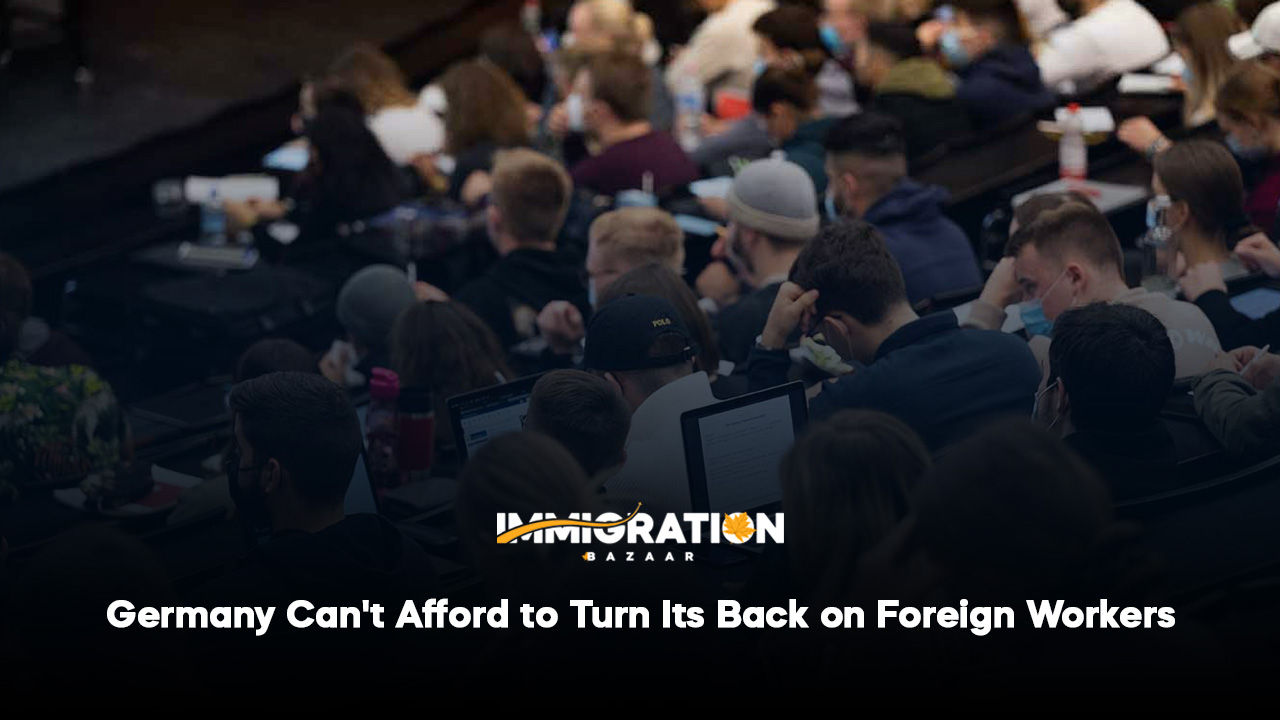Introduction
Germany is facing a significant challenge in its labor market, characterized by persistent shortages across various sectors. This situation has prompted the government and businesses to rethink their approach to immigration, particularly the role of foreign workers in sustaining economic growth and supporting social systems. As Germany grapples with demographic shifts and an aging population, the necessity of attracting skilled immigrants has become increasingly apparent. This article explores the implications of this labor market crisis, the policies being implemented to attract foreign workers, and the broader context of immigration in Germany.
-
The Current Labor Market Landscape in Germany
1.1 Labor Shortages and Economic Implications
Germany’s economy is one of the largest in Europe, but it is currently experiencing a critical shortage of labor. According to various reports, sectors such as healthcare, construction, information technology, and manufacturing are particularly affected. For instance, the German Chamber of Commerce and Industry (DIHK) reported in 2023 that approximately 1.7 million positions were unfilled across the country.
The consequences of these labor shortages are significant, impacting productivity, economic growth, and the ability of companies to meet demand. Many businesses have reported reduced capacity to deliver goods and services, leading to financial losses and a slowdown in economic progress.
1.2 Demographic Challenges
Germany’s demographic challenges are compounded by an aging population. According to Eurostat, about 21% of the German population is over the age of 65, and this percentage is expected to rise in the coming decades. With a declining birth rate and an increasing number of retirees, there are fewer workers available to support the economy and contribute to social systems.
This demographic shift necessitates a proactive approach to immigration, as foreign workers can help fill the gaps in the labor market and ensure that social systems remain sustainable.
-
The Role of Foreign Workers in Germany’s Economy
2.1 Contributions of Immigrants
Foreign workers have long been integral to Germany’s economy, particularly in sectors facing labor shortages. Many immigrants bring valuable skills and expertise that contribute to innovation and productivity. For example, the technology sector relies heavily on skilled foreign workers to drive advancements and maintain Germany’s competitive edge in the global market.
In healthcare, foreign workers make up a substantial portion of the workforce, particularly in nursing and elder care. This is crucial as the country faces a growing demand for healthcare services due to its aging population.
2.2 Economic Growth and Stability
The presence of foreign workers is not merely a stopgap measure; it is essential for long-term economic stability. A diverse workforce fosters creativity, innovation, and problem-solving, all of which are vital for sustaining growth in a rapidly changing global economy. Additionally, foreign workers contribute to the economy by paying taxes and participating in social security systems, further supporting public services.
-
Government Policies to Attract Foreign Workers
3.1 Recent Immigration Reforms
Recognizing the urgent need to attract skilled immigrants, the German government has implemented several reforms to its immigration policies. In 2020, Germany introduced a new immigration law designed to simplify the process for foreign workers seeking to come to the country. Key features of this law include:
- Easier Recognition of Foreign Qualifications: The new law streamlines the process for recognizing foreign qualifications, making it easier for skilled immigrants to integrate into the labor market.
- Point-Based Immigration System: Similar to systems used in Canada and Australia, Germany is considering a point-based immigration system that evaluates applicants based on factors such as skills, work experience, and language proficiency.
3.2 Promotion of Vocational Training
Germany has also increased its efforts to promote vocational training programs aimed at integrating foreign workers into the workforce. The country is known for its dual education system, which combines classroom learning with hands-on experience in the workplace. By offering vocational training to foreign workers, Germany can equip them with the specific skills needed to succeed in its labor market.
3.3 International Recruitment Initiatives
The German government has launched various international recruitment initiatives to attract skilled workers from around the world. For instance, campaigns targeting professionals in healthcare, engineering, and information technology have been implemented to encourage foreign workers to consider Germany as a destination for employment.
-
The Challenges of Attracting Foreign Workers
4.1 Public Perception and Political Climate
Despite the clear economic need for foreign workers, public perception and political climate play significant roles in shaping immigration policies. Anti-immigration sentiments have been on the rise in various European countries, including Germany. Political parties that advocate for stricter immigration controls have gained traction, creating challenges for policymakers seeking to implement more inclusive immigration strategies.
4.2 Bureaucratic Hurdles
While recent reforms have made progress in simplifying the immigration process, bureaucratic hurdles remain a significant obstacle. Lengthy application processes and complex requirements can deter potential immigrants. Streamlining these processes further is essential to attracting foreign workers.
4.3 Language Barriers
Language can be a barrier for many foreign workers seeking to integrate into the German labor market. While many Germans speak English, proficiency in German is often essential for professional success. Language training programs will be vital for helping immigrants overcome this hurdle.
-
The Future of Immigration in Germany
5.1 Building a Diverse Workforce
As Germany continues to face labor shortages, the importance of building a diverse and inclusive workforce cannot be overstated. The integration of foreign workers will play a pivotal role in addressing these challenges and ensuring the country remains competitive in the global economy.
5.2 The Role of Education and Training
Investing in education and training for both domestic and foreign workers is crucial for maintaining a skilled workforce. Germany must continue to enhance its vocational training programs and educational institutions to equip individuals with the skills needed in an evolving labor market.
5.3 Collaboration with the Private Sector
Collaboration between the government and private sector will be essential for addressing labor shortages. Businesses must play an active role in supporting immigration initiatives by offering training programs, internships, and mentorship opportunities for foreign workers.
Conclusion
Germany cannot afford to turn its back on foreign workers. The challenges faced by the country in terms of labor shortages and demographic shifts underscore the necessity of attracting skilled immigrants to sustain economic growth and support social systems. As the government implements policies to simplify immigration processes and promote vocational training, it is essential to remain vigilant against public sentiment that may hinder these efforts.
The success of these initiatives will ultimately depend on the collective efforts of the government, businesses, and society to create an inclusive environment that welcomes foreign workers and recognizes their vital contributions to the economy.







